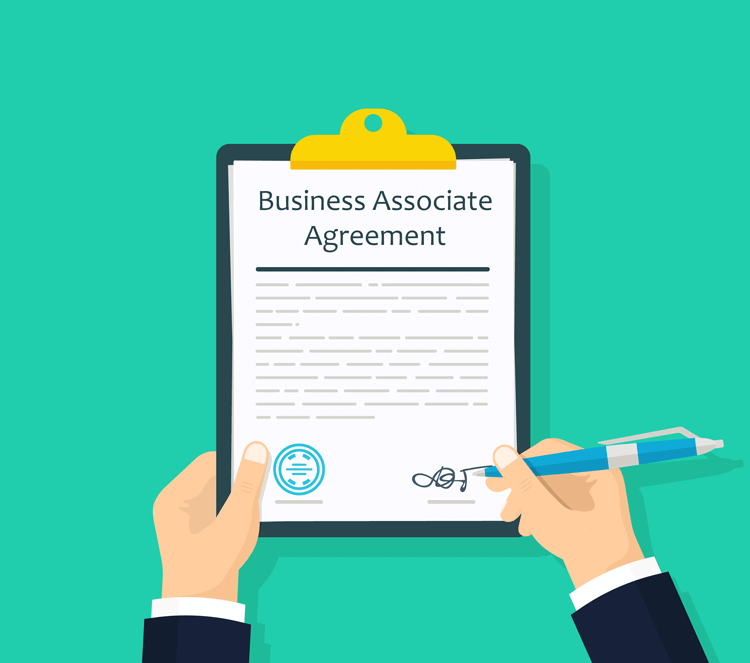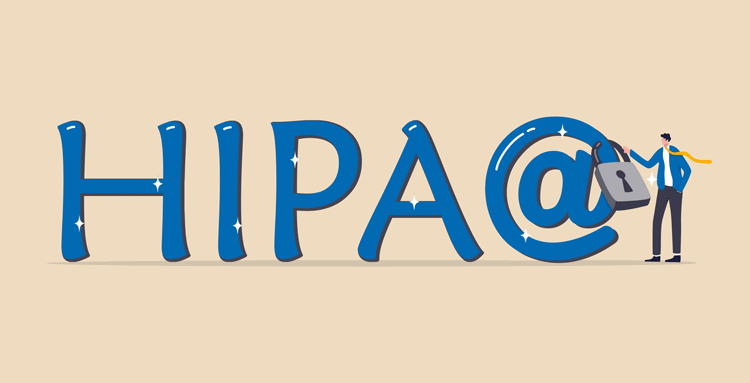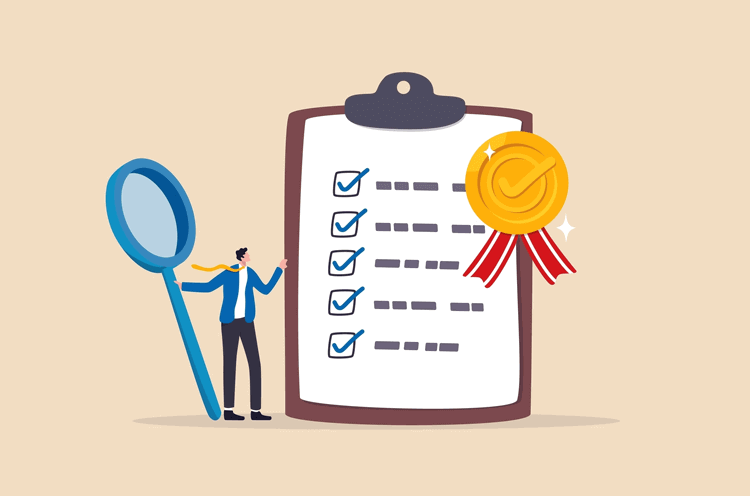The Essential Guide for the HIPAA Privacy Officer: Roles, Responsibilities, and Requirements
In the healthcare sector, the role of a HIPAA Privacy Officer has become increasingly pivotal. As organizations navigate the complexities of maintaining patient confidentiality and complying with the Health Insurance Portability and Accountability Act (HIPAA), the need for a dedicated professional to oversee this process is more important than ever.

This blog post examines the multifaceted responsibilities and requirements of a HIPAA Privacy Officer, offering valuable insights for businesses and individuals alike.
Defining the Role: What Exactly is a HIPAA Privacy Officer?
A HIPAA Privacy Officer usually manages the implementation, oversight, and enforcement of privacy policies and procedures mandated by HIPAA within an organization. They are also sometimes known as a HIPAA Privacy Official. They need a deep understanding of the legal and ethical aspects of handling sensitive health information. They also need to be able to effectively navigate the complexities of compliance regulations. All in all, it is a key position which can ensure organizations avoid large fines and negative publicity.
Key Roles and Responsibilities of a HIPAA Privacy Officer
The role of a HIPAA Privacy Officer is multifaceted, spanning a range of duties. Depending on the size and scope of the organization, the position is likely to focus on the following roles and responsibilities:
- Developing and Implementing Privacy Policies: Creating comprehensive privacy policies that align with HIPAA guidelines. Ensuring they are effectively communicated and implemented within the organization.
- Training and Education: Devising a compliance training program and conducting regular training sessions for staff. This is to ensure they are aware of privacy policies and understand their roles in maintaining compliance.
- Compliance Monitoring: Continuously monitoring the organization's adherence to privacy policies and HIPAA regulations. Making necessary adjustments to practices as required.
- Incident Management: Leading the response to privacy breaches or incidents, including investigation, mitigation, and reporting.
- Advising on Patient Rights: Guiding the organization on matters related to patient rights, such as access to medical records and the right to privacy.
- Liaising with Regulatory Bodies: Acting as the primary contact point for external audits and inquiries from regulatory bodies like the Department of Health and Human Services (HHS).
- Continuous Improvement: Regularly reviewing and updating privacy practices and policies to reflect changes to laws, regulations, or organizational operations.
Privacy Officer vs Compliance Officer: What is the Difference?
A HIPAA Privacy Officer and a Privacy Compliance Officer have unique roles:
HIPAA Privacy Officer
- Focused on Patient Data: Ensures patient health information (PHI) is used and disclosed appropriately under HIPAA guidelines.
- Policy Development: Crafts and updates privacy policies specific to an organization's PHI.
- Training and Compliance: Leads HIPAA training programs for staff and monitors compliance.
- Incident Response: Manages responses to any breaches related to PHI.
Privacy Compliance Officer
- Broader Compliance Scope: Oversees compliance with HIPAA but also other healthcare laws like the Health Information Technology for Economic and Clinical Health Act (HITECH) and other state-specific privacy laws.
- Risk Assessment: Conducts comprehensive privacy risk assessments to identify and mitigate legal and compliance risks.
- Policy Oversight: Develops and enforces policies that cover broader aspects of healthcare compliance, including ethics and fraud prevention.
In summary, the HIPAA Privacy Officer focuses specifically on HIPAA compliance and patient data privacy, while the Privacy Compliance Officer oversees a broader spectrum of compliance issues, including HIPAA and other healthcare regulations. The scope and scale of each organization will determine how the role is positioned.
The Increasing Importance of Privacy Officers in Healthcare
The role of Privacy Officers has grown in significance more than ever before. This escalation is driven by several key factors:
- Rising Incidences of Data Breaches: The healthcare sector continues to be a prime target for cyberattacks, with an alarming increase in data breaches year-over-year. According to numbers posted in The HIPAA Journal, in September 2023 alone, hacking/IT incidents accounted for 81.25% of all reported data breaches of 500 or more records in the healthcare sector, involving a total of 6,591,496 records. These breaches compromise patient privacy and can place immense legal and financial burdens on the organizations involved.
- Technological Advancements: The adoption of advanced technologies like Electronic Health Records (EHRs) and telemedicine require robust data protection strategies. According to HealthIT.gov, as of 2021, nearly 4 in 5 office-based physicians (78%) and almost all non-federal acute care hospitals (96%) adopted a certified EHR. This statistic marks a substantial increase from 2011, when only 28% of hospitals and 34% of physicians had adopted an EHR. The HIPAA Privacy Officer now manages the privacy aspects of these technologies. They also safeguard sensitive patient information against unauthorized access.
- Growing Complexity of Regulations: The legal framework governing patient data privacy and healthcare compliance, including HIPAA and HITECH, is becoming increasingly complex. When future changes are announced, a Privacy Officer prepares the organization for these updates. This involvement ensures that organizations remain compliant and that their operations continue seamlessly.
- Patient Awareness and Expectations: There's a growing awareness and concern among patients regarding their health data privacy. Privacy Officers help maintain patient trust using secure data-handling practices and transparent conversations.
Top Qualities to Seek in an Effective HIPAA Privacy Officer
The right individual as the HIPAA privacy officer requires more than the ability to manage regulatory criteria. It requires a combination of specialized skills, personal attributes, and professional experience. Here are the top qualities to look for:
- In-Depth Knowledge of HIPAA and Healthcare Regulations: An effective HIPAA Privacy Officer must have a comprehensive understanding of HIPAA laws and other related healthcare regulations.
- Strong Analytical Skills: The ability to analyze complex legal documents and healthcare data is crucial. They should be able to interpret regulations and apply them effectively to protect patient privacy and organizational interests.
- Exceptional Communication Skills: Interacting with various levels of staff and external entities requires strong verbal and written communication skills. They need to convey complex information clearly and effectively.
- Leadership and Decision-Making Ability: The role often requires leading teams and making critical decisions, especially in response to data breaches or compliance issues.
- Attention to Detail: Given the complexities of healthcare data and the nuances of privacy laws, keen attention to detail is imperative. This quality ensures thoroughness in policy development and compliance monitoring.
- Proactive Risk Management: They should anticipate potential privacy issues and implement strategies to mitigate risks.
- Ethical Integrity and Discretion: Handling sensitive patient information requires a high degree of integrity and an ability to maintain confidentiality.
- Adaptability and Continuous Learning: The legal and technological landscapes are constantly evolving. Therefore, they must be willing to continually learn and adapt, to stay current with new regulations and technologies.
Essential Tips for Recruiting a HIPAA Privacy Officer
Finding the right candidate to fulfill the role of a HIPAA Privacy Officer involves a strategic approach to recruitment. Especially in a job market as saturated as that of today, it is important to narrow down your search as best you can. Using some of these essential tips can help guide you through the process:
- Identify Key Qualities and Skills: Start by clearly defining the qualities and skills most critical for the role, as outlined in the "Top Qualities to Seek in an Effective HIPAA Privacy Officer" section above. These points will form the basis of your job description.
- Leverage Professional Networks: Utilize professional networks, especially those in the healthcare and legal fields. Platforms like LinkedIn, healthcare compliance associations, and industry-specific job boards can be valuable resources.
- Develop a Targeted Job Description: Create a job description that lists responsibilities and qualifications. Highlight the specific ideal qualities of an effective HIPAA Privacy Officer.
- Structured Interview Process: Implement a structured interview process that includes situational and behavioral questions. These components will help assess how candidates might handle real-world scenarios related to privacy and compliance.
- Evaluate Problem-Solving Abilities: Given the complex nature of HIPAA regulations, assess candidates' problem-solving and analytical skills. Present hypothetical compliance challenges and ask how they would navigate them.
- Check References Thoroughly: Inquire from their references about past experiences and accomplishments related to HIPAA compliance and privacy management.
- Plan for an Effective Onboarding: Once the right candidate is selected, ensure there is a comprehensive onboarding process. This process should include an in-depth introduction to your organization's compliance needs, policies, and culture.
- Invest in Continuous Development: Encourage ongoing education and professional development. Ensuring your hire has access to updated employee training modules and access to industry events might be helpful.
The Bottom Line: Understanding the Importance of HIPAA Privacy Officers in Healthcare
When it comes to answering the question, "What is a privacy officer in healthcare?", we have uncovered the critical role HIPAA Privacy Officers play in today's healthcare organizations. Their expertise in navigating the complexities of HIPAA and other healthcare regulations, coupled with their commitment to safeguarding patient data, can keep organizations compliant and out of trouble. As the healthcare landscape continues to evolve with technological advancements and changing regulations, the need for skilled and dedicated HIPAA Privacy Officers has never been more apparent.
For more detailed insights on ensuring HIPAA compliance in your organization, check out these helpful resources:





